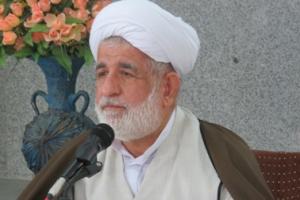Hujjat al-Islam Sa'adat Nejad, former representative of the Supreme Leader in the Quds Force:
Martyr Soleimani was attentive to the sensitivities of all individuals, groups, and nationalities. He respected and honored everyone's sacred beliefs. Sunnis who sat with him felt he was Sunni, while Shias saw him as an ideal Shia.
He worked closely with Hamas, a Sunni movement, yet was extremely mindful of Sunni traditions in his dealings and interactions. This made everyone in Hamas deeply admire him. What distinguished Haj Qasem and made everyone love him was his sincerity and dedication to serving Islamic causes. As Ismail Haniyeh said during his funeral, "We bear witness that Haj Qasem is the martyr of Al-Quds," repeating it three times, reflecting Hamas's deep belief.
Haj Qasem is regarded as the martyr of Al-Quds and Palestine. During the liberation of Amerli, many pictures of him were published. One day, I asked Haj Qasem, "Why did you expose yourself to the cameras so much? You always avoided the spotlight; what changed here?" He replied, "There was a reason. I wanted to send a message to the entire world, to let them know that if the rights of any Shia are violated or they are oppressed anywhere, I, as Haj Qasem, and with the support of the Islamic Republic, will be at the forefront of the fight against the oppressor and standing by the oppressed Shia."
There were many occasions when Martyr Soleimani would hold meetings with groups and party leaders to discuss issues. Often, these discussions aimed to establish a coalition for unity, whether for elections or government-building, but when the meetings proved fruitless, he would become weary and end them. From there, he would head to Karbala. If he were near the shrine of Imam Ali (AS) in Najaf, he would visit it and seek his intercession. Crying and pleading at the doors of the Ahlul Bayt (AS) were the keys to victory and success for Martyr Soleimani.
Martyr Qasem Soleimani had a special sensitivity towards respecting scholars, whether Shia or Sunni, and revered the grand religious authorities.
He was always committed to ensuring that scholars were at the forefront of any movement, saying: "If the scholars come forward, the rest of the people will follow. People look up to their scholars and intellectuals." On many occasions and in various situations, I saw him insisting on involving specific scholars or religious authorities. He would say: "The issue won't be resolved, and the task won't be accomplished unless we bring that scholar, that authority, or that intellectual figure to the forefront


